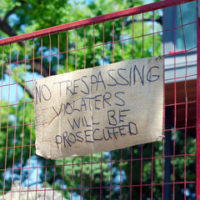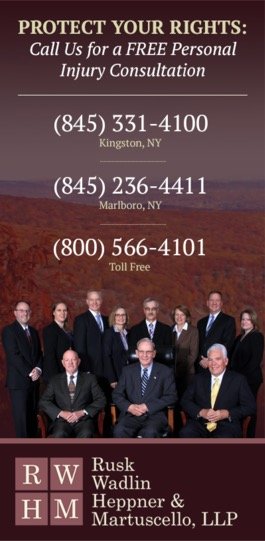Your Liability to Maintain a Safe Premises for Others on Your Property

You invite some friends and neighbors over for a social gathering, and someone stumbles and falls because of a broken piece of concrete on your walkway. Are you going to be sued by your friend or neighbor? It probably depends on how good a friend they are, how badly they were hurt, and how much homeowners’ insurance you have. Maintaining your home’s sidewalk, driveway, entryway and porch in a safe condition can help prevent trip and fall accidents from occurring on your property in the first place. If an injury does occur, whether you are responsible to pay for the injury victim’s damages (medical expenses, lost income if they missed work or became disabled, pain and suffering, etc.) depends upon a number of factors. The body of law covering these types of accidents is known as premises liability law, and laws differ from state to state, and even city to city.
Invitees, Licensees and Trespassers
Traditionally, or in the “common law,” visitors to your property are classified as either invitees, licensees, or trespassers, and the precise nature of your duty to provide a safe premises differs depending upon the status of the individual. Twenty-four states have adopted this common law distinction into their state’s premises liability laws. We asked New York personal injury attorney Leandros A. Vrionedes to explain these distinctions. He said that although the exact definitions may differ from state to state, these categories are generally defined as follows:
Invitee –
someone who is invited onto the property for the owner’s commercial purpose, like a customer in a store. In the context of a homeowner, an invitee may be a contractor you have hired to perform work on your house, such as painting or roof repair. Property owners owe the highest level of duty to invitees. This includes a duty to inspect the property and discover any previously unknown dangers. Once a danger is known, the owner should take reasonable steps to make the premises safe or warn about the hazard. A property owner can be liable to invitees for harm caused by dangers that are known or should have been known following a reasonable inspection. This is known as having “actual or constructive notice” of the danger.
Licensee –
This is someone who has permission to enter the property for the benefit of the homeowner, such as to deliver mail, read the meter, repair utility lines, etc. A social guest is normally classified as a licensee as well, and not an invitee, even though they may be an “invited” guest. A property owner owes a duty of care to known visitors, which includes a duty to warn about known dangers. A property owner does not owe a duty to licensees to inspect the property and discover unknown dangers.
Trespasser –
A trespasser is someone who is on your property without permission, express or implied. The duty owed to a trespasser is generally limited to a duty to not intentionally harm a trespasser, such as by setting traps or digging pits in the yard. There is generally no duty to warn a trespasser of danger, although there may be such a duty to child trespassers who may be attracted to a swimming pool that is unfenced or accessed through an unsecured gate. This is known as an “attractive nuisance” and could apply to other conditions, such as having a large mound of dirt in your yard temporarily while you are excavating or landscaping.
Premise Liabilities in Each State
Only about half the states have kept these categories of visitors on your property. The other half, including New York, have abandoned these distinctions and create one blanket duty to use reasonable care towards all persons on the property. Of these 25 states, seven of them include trespassers in this duty and 18 do not (in Nevada, “flagrant” trespassers are excluded from the premises liability law). New York is one of the few states which include trespassers in the duty to use reasonable care.
Some states have even more categories than the three traditional categories noted above. For example, in Florida, the duty of a property owner may vary depending upon whether the injury victim is classified as a public invitee, business invitee, invited licensee, uninvited licensee, or trespasser. Maryland has two classes of licensee, a “bare licensee” or a licensee by invitation, aka a social guest. South Carolina distinguishes duties toward adult trespassers and children.
There are many other aspects to premises liability law that vary from state to state, including contributory negligence or comparative fault laws, and legal doctrines such as assumption of the risk, the mode of operation rule, the firefighter’s rule and the recurring-condition rule. While as a responsible homeowner you do what you can to maintain your premises in a safe condition, it’s important to know the full extent of the duties imposed on you by state and local laws to avoid a premises liability lawsuit when someone slips, trips or falls on your property.



